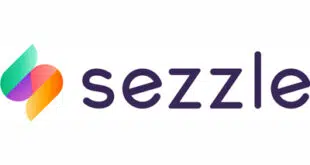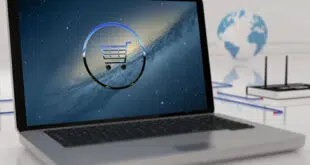In anticipation of rising demand for contactless form factors other than credit and debit cards, Dynamic Card Solutions LLC this week introduced a product that allows bank branches to personalize key fobs, contactless stickers, and NFC-equipped cell phones on the spot. The product, called Perso-to-Go, complements an existing system the Englewood, Colo.-based company has offered for several years that lets banks instantly issue debit cards to customers (Digital Transactions News, July 12, 2006). Perso-to-Go arrives at a time when a diverse array of companies, including First Data Corp., Oberthur Technologies, CPI Card Group, Heartland Payment Systems, and Blaze Mobile are starting to create and issue radio-frequency identification tags with adhesive backing that can be affixed to mobile devices. These so-called stickers let consumers wave or tap their phones to make contactless transactions in a process widely seen as a half-way house to payments based on near-field communication (NFC) technology. Unlike NFC, stickers do not communicate with the phone's operating system. At the same time, at least one expert observer who follows mobile payments has raised questions about the wisdom of using stickers (Digital Transactions News, May 20). Instant issuance allows banks to get stickers into consumers hands more quickly, which could mean more interchange income for the bank as customers begin making transactions sooner. With cards, instant issuance gets the product to customers eight days sooner, on average, than with the conventional process requiring banks to mail cards, according to Ron Zanotti, senior vice president at DCS, who cites a study the company conducted. In that eight-day period, cardholders performed three to six incremental transactions. Instant issuance could be even more lucrative to issuers with non-card form factors. That's because all debit-based contactless transactions earn interchange at signature-debit interchange rates, which are higher than the rates issuers earn on PIN debit. Still, U.S. demand for contactless transactions using fobs, stickers, or NFC phones remains unclear. Stickers are only just starting to appear on the market. No NFC phones have entered the market yet beyond pilot usage. And the biggest backer of contactless fobs, American Express Co., has backed away from them. “The first thing any bank is going to ask is, 'Why should we do this?'” notes Nick Holland, senior analyst at Aite Group LLC. Holland says budgetary constraints brought on by the sour economy may also complicate the market for a product like Perso-to-Go. “It's probably the wrong time for them to be bringing this to market,” he says, noting how banks are looking to invest tech dollars chiefly in proven processes with high return on investment. Zanotti concedes the picture is cloudy for demand domestically. “Film at 11 on that,” he says. “That's the $64,000 question.” The company currently has no orders on the books. But he says international markets, where chip-based transactions are more common, will adopt Perso-to-Go before U.S. markets do. Currently, DCS has installed its CardWizard instant-issuance platform for cards at 5,000 bank branches, of which about 5% are outside the U.S. If stickers gain traction in the U.S., though, the domestic market for Perso-to-Go could “take off,” Zanotti says. “We're doing [Perso-to-Go] in anticipation of what we've seen in the international space and with stickers in the domestic space.” With Perso-to-Go, branch personnel place the fob, sticker, or phone on a so-called Perso Pad, a device about the size of an iPhone and less than an inch thick. The pad, which is linked to the bank employee's PC via a USB cable, wirelessly transmits card-account data to the chip inside the fob, sticker, or phone. DCS's CardWizard software manages the process, communicating with the bank's card-management system. The platform requires a one-time software and hardware upgrade, for which DCS charges about $10,000, Zanotti says. Then each Perso Pad runs $349.
Check Also
Blaqclouds Puts Crypto on the Menu for Restaurants
Cryptocurrency is coming to restaurants, a market that has already become hotly contested by a …





